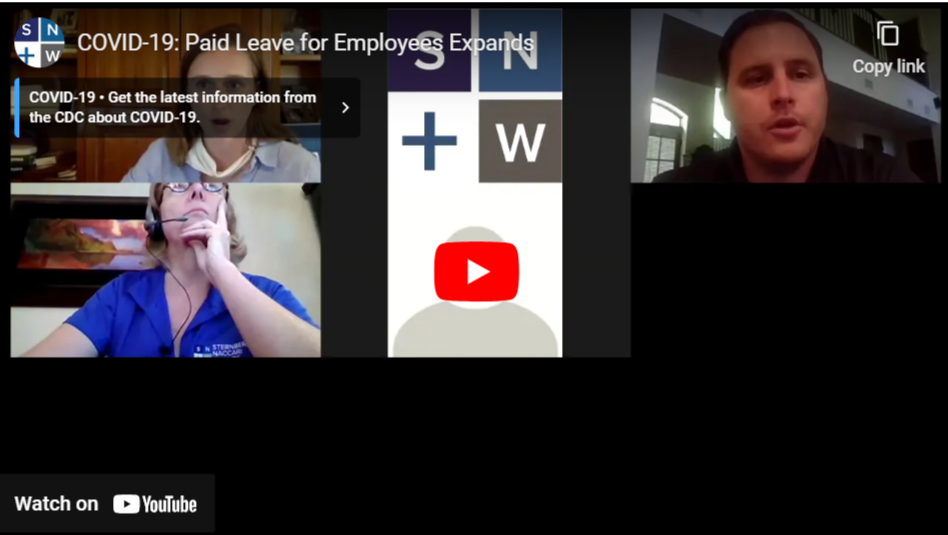
In response to the COVID-19 pandemic, the federal government has expanded mandatory paid leave for employees.
The Families First Coronavirus Response Act (“FFCRA”) covers employers with less than 500 employees. Employers must provide up to 12 weeks of paid leave in some cases. The law also provides refundable tax credits to businesses to offset these costs.
Eligible Employees
For employers with fewer than 500 employees, employees get two weeks of fully or partially paid sick leave for COVID-19 related reasons. If an employee has been employed for at least 30 days, they may be eligible for up to 10 weeks of partially paid leave to care for their minor child whose school or daycare is closed.
Scope of Required Benefits
Generally, employers covered under the Act must provide up to two weeks (80 hours or the part time employee’s two-week equivalent) at the employee’s full pay if:
The Illness or exposure requires that
- the employee is under a quarantine or an isolation order,
- has been advised by a healthcare provider to be quarantined, or
- is experiencing coronavirus symptoms and needs a medical diagnosis.
Caretakers who cannot telework are eligible for 2/3 of their pay if their:
- work absences are in order to care for a person under a quarantine or isolation order
or
- work absences are to care for a child whose school or childcare has closed because of the coronavirus.
Employers must provide up to an additional ten (10) weeks at a two-thirds pay to employees who must care for their minor child if the child’s school or childcare is closed or unavailable because of a public health emergency. To get this 10-week benefit, employees must have been on the payroll for at least 30 days.
Tax Credits for Employers
The new law provides tax credits to employers that will offset the costs. The credits can be used to offset all federal income tax withholding from all employees (including those still working) and both the employer and employee portions of Social Security and Medicare taxes for all employees.
Enforcement
The U.S. Department of Labor’s Wage & Hour Division has the authority to investigate and enforce compliance with the FFCRA. Employers may not fire, discipline, or otherwise discriminate against an employee for lawfully taking sick leave or expanded family and medical leave under the FFCRA.
Planning is Essential
Many of the FFCRA’s provisions interact with the CARES Act, so consultation with a knowledgeable attorney and accountant is essential to properly plan and maximize your employee benefits.
If you are a business who needs guidance on compliance or an employee who needs advice related to COVID-19 paid leave.



